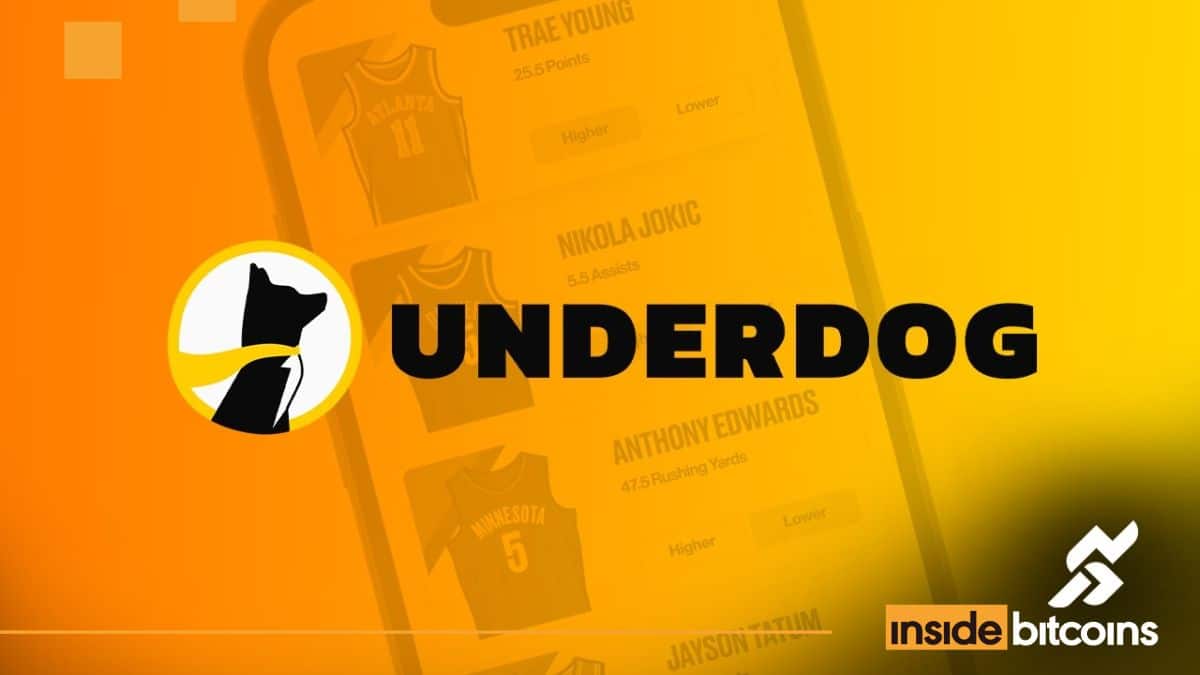Underdog Fantasy, a prominent daily fantasy sports (DFS) operator, has made a sudden and notable comeback in New York, just weeks after withdrawing from the state under regulatory pressure. The company’s return is enabled by a new temporary license granted by the New York State Gaming Commission (NYSGC), allowing it to resume its draft-style DFS contests for New York residents.
Background: Exit from New York
As we previously reported, in March 2025, Underdog Fantasy pulled all of its DFS offerings from New York. This decision followed a ruling from the NYSGC, which determined that the games Underdog was providing did not align with the conditions of its temporary license. The company had inherited this license through its acquisition of Synkt Games in 2022. The NYSGC argued that Underdog’s contests were substantially different from those Synkt was authorized to offer, leading to regulatory action.
As part of a settlement with the NYSGC, Underdog agreed to pay a fine of $17.5 million to $18 million-an amount calculated based on the company’s revenue in New York. The company also agreed to voluntarily withdraw its DFS contests from the state, rather than contest the decision in a lengthy legal battle.
The Path Back: Temporary License and Relaunch
After its March exit, Underdog Fantasy worked to address compliance concerns and sought to return to the New York market. On May 16, 2025, at approximately 7 p.m., the company officially relaunched its draft-style DFS games in the state. This relaunch was made possible by securing a new temporary license from the NYSGC, a type of approval commonly used for DFS operators in New York while the state continues to work toward a permanent licensing framework.
Currently, only Underdog’s draft-style DFS games are available in New York. The company’s popular pick’em contests-both against-the-house and peer-to-peer versions-remain unavailable under the terms of the temporary license.
Why Temporary Licenses Matter
New York has operated its DFS market using temporary licenses since 2016, as the state has yet to finalize a permanent licensing process for interactive fantasy sports. Most DFS companies in the state, including major operators, are functioning under these temporary approvals. Temporary licenses allow companies to operate while the state continues to review applications and develop long-term regulations.
These licenses, however, come with strict conditions. The NYSGC requires that the games offered under a temporary license closely match those described in the original license application. Any significant deviation can result in regulatory action, as Underdog experienced earlier this year.
Company Origins and Rapid Growth
Underdog Fantasy Sports burst onto the scene in 2020 as a fresh alternative in the online daily fantasy sports (DFS) market. Despite being a newcomer compared to industry veterans, the company achieved remarkable financial success, reaching a valuation of $485 million by 2022. This impressive growth trajectory demonstrates the potential for new entrants to disrupt established markets with the right combination of product innovation and strategic positioning.
The company has expanded from a modest beginning to a substantial organization with approximately 350 employees, growing from just 10 staff members in its initial phases. By late 2023, Underdog had surpassed a significant milestone of serving over one million paid customers. This rapid customer acquisition showcases the company’s ability to capture market share despite competing against more established brands with longer histories and deeper resources.
Game Offerings and Player Experience
Underdog has differentiated itself through distinctive game formats that appeal to various segments of fantasy sports enthusiasts. Their platform features two primary game types: “Best ball” and “Pick’em” contests. The Best ball format offers a simplified approach where users draft teams without requiring ongoing management-the highest-scoring players are automatically counted toward the user’s score. This format appeals to casual players who enjoy the drafting experience but prefer not to commit to daily lineup adjustments.
The company’s Pick’em mode allows players to build parlays with player props, selecting over or under predictions for specific player statistics. Successful predictions across all selections result in multiplied payouts. This offering spans numerous sports leagues, including major professional leagues like MLB, NBA, NHL, NFL, as well as college sports, golf, tennis, UFC, Formula 1, soccer, and even esports competitions.
More recently, Underdog introduced “Champions,” a peer-to-peer fantasy contest format that has helped the company maintain presence in markets with stricter regulatory frameworks. The Champions format represents the company’s adaptability in navigating complex regulatory environments while continuing to serve customers in restricted markets.
The Compliance Challenge
The dispute between Underdog and the NYSGC centered on whether the company’s offerings were consistent with what Synkt Games had been permitted to run. The NYSGC found that Underdog’s games were too different from Synkt’s, leading to the fine and withdrawal. Underdog’s general counsel, Nicholas Green, emphasized that the issue was specific to the interpretation of New York’s temporary licensing rules, not to the legality of any particular game format.
Underdog maintained that it operated in good faith, believing it had the right to offer its games under the inherited license. The company cooperated with the NYSGC’s investigation and, as part of the settlement, remains eligible to apply for a permanent DFS license in the future.
The Strategic Importance of New York
New York represents one of the largest and most lucrative DFS markets in the United States. The state’s strict regulatory environment makes entry and continued operation challenging, but also highly rewarding for companies that can comply. Underdog’s return to New York is seen as a significant strategic win, giving the company access to a major market and the opportunity to rebuild its brand presence.
What’s Next for Underdog Fantasy in New York?
With its draft-style DFS games live again, Underdog is once more competing in a market dominated by established giants like DraftKings and FanDuel. The company has also applied for a permanent DFS license, hoping to secure long-term approval as New York moves toward a more stable regulatory framework.
For now, Underdog’s operations in New York are limited to the products specifically allowed under its temporary license. The company’s pick’em contests, which were at the center of the earlier regulatory dispute, remain unavailable. The NYSGC has not yet commented publicly on the specifics of Underdog’s re-entry or the timeline for reviewing permanent license applications.
Expansion Beyond Fantasy Sports
Following industry trends, Underdog has begun expanding beyond pure fantasy sports offerings. In early 2024, the company launched its sportsbook in North Carolina, joining operators like bet365 and ESPN Bet in the state. This diversification represents a natural evolution for successful fantasy sports operators as legal sports betting continues to expand across America.
The company’s growth strategy appears focused on leveraging its brand recognition and existing customer base to explore adjacent gaming markets where legally permissible. This approach mirrors the paths taken by larger competitors like DraftKings and FanDuel, which have successfully transitioned from fantasy-only operators to comprehensive gambling platforms.
The Broader Regulatory Landscape
New York’s reliance on temporary licenses is not unique; many states use similar mechanisms to allow DFS and sports betting operators to function while permanent rules are developed. Temporary licenses are typically easier to revoke and come with more restrictions than permanent ones, giving regulators flexibility as they evaluate applicants and market conditions.
This approach, however, can create uncertainty for operators and players alike. Companies must be vigilant in ensuring their offerings match the terms of their licenses, and any innovation or change in product can trigger regulatory review.
Industry Reaction and Future Outlook
Underdog’s return to New York has been met with interest across the DFS industry. The company’s willingness to pay a substantial fine and work with regulators to regain market access demonstrates the value of the New York market. It also highlights the challenges DFS operators face in navigating evolving legal and regulatory environments.
As New York continues to refine its licensing process-potentially moving from temporary to permanent approvals-the landscape for DFS operators will remain dynamic. Companies like Underdog that can adapt quickly and maintain compliance are well positioned to thrive.
As the fantasy sports, online gambling and online crypto gambling sectors continue evolving, companies like Underdog face both opportunities and challenges. The gradual expansion of legal sports betting across America creates natural growth avenues for established fantasy operators with existing customer bases and brand recognition. Simultaneously, increasing regulatory scrutiny demands careful navigation of complex and sometimes contradictory state requirements. For players in New York, the return of Underdog’s draft-style contests provides more choice and competition in the marketplace. The company’s future in the state will depend on its ability to maintain regulatory compliance and secure a permanent license as the NYSGC updates its rules.
Related Pages
- Fantasy Sports Giant Underdog Halts New York Operations Following $17.5M Regulatory Settlement
- Gaming Industry Boosts Spending on Responsible Gaming Efforts Amid Growing Commitment
- New York Introduces Stricter Gambling Ad Regulations with Addiction Warnings
- New York’s Sports Betting Market Cools Off in February


